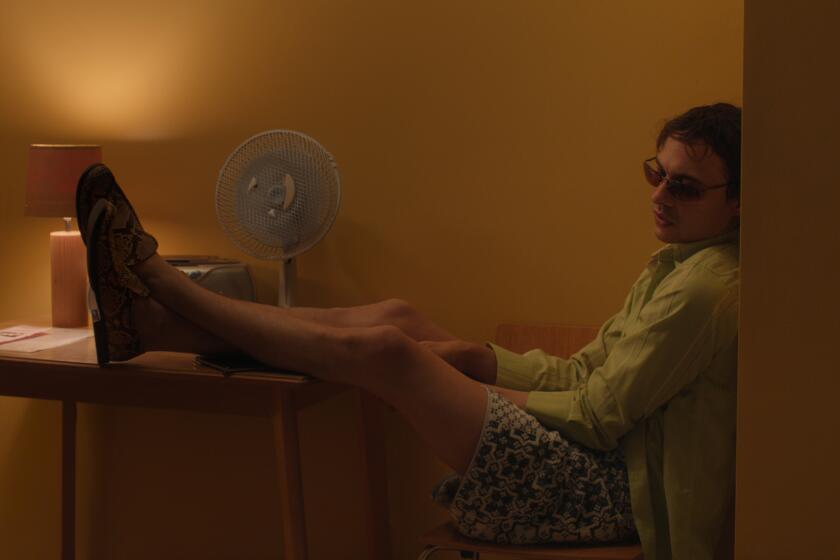Murdoch May Swap DirecTV
- Share via
Rupert Murdoch spent more than a decade trying to gain control of DirecTV Group Inc., the nation’s leading satellite TV operator.
But the chairman of News Corp. appears willing to give that up for something he values even more: bulletproof control of his own company.
Murdoch is negotiating to swap his 38% stake in El Segundo-based DirecTV to cable pioneer John Malone for the 19% voting stake in News Corp. owned by Malone’s Liberty Media Corp., according to two people familiar with the negotiations.
The trade would free Murdoch from fears that Liberty’s chunk could fall into unfriendly hands and threaten his family’s grip on News Corp. In the last year and a half, Liberty has become the second-largest shareholder in News Corp. after the Murdoch family, which controls nearly 30%.
If accomplished, a deal also would allow Murdoch to opt out of a crushing battle in the pay television business, as telephone companies enter the market. Already, DirecTV’s growth has slowed as cable rivals such as Comcast Corp. have provided high-speed Internet access and phone service over the same wire into the home that they use to deliver TV.
At the same time, the swap would return Malone to media’s big leagues. Liberty’s assets include the nation’s largest home-shopping network, QVC, the Starz movie channels and large stakes in Discovery Communications and Barry Diller’s IAC/InterActiveCorp., but Malone’s status as a media mogul waned in 1999, when he sold the nation’s leading cable television provider, Tele-Communications Inc., to AT&T; Corp.
If he gains control of DirecTV, Malone eventually would pursue a merger with its sole rival, EchoStar Communications Corp., according to sources at News Corp., who asked not to be identified because the negotiations are private.
Executives at Liberty Media could not be reached for comment.
Federal regulators rejected a proposed combination of the nation’s two satellite TV providers in 2002 as anti-competitive. However, Murdoch, 75, has said publicly that the new competition in the pay television business from telephone companies could make Washington more amenable to such a deal today.
Murdoch purchased its DirecTV holdings from General Motors Corp. in late 2003 to fill a void in a satellite apparatus that reached every corner of the globe. Among News Corp.’s satellite services are BSkyB in Britain and StarTV in Asia.
However, his enthusiasm for DirecTV has diminished in the last year because of satellite TV’s technical limitations and its slowing growth, News Corp. insiders say. Satellite technology is not capable of delivering the advanced services at the core of the cable-phone rivalry.
This summer, Murdoch and Malone tentatively agreed to a widely publicized trade involving 10 News Corp. TV stations. But in mid-July, when the pair were at the Allen & Co. media conference in Sun Valley, Idaho, they discussed the DirecTV transaction, according to News Corp. insiders.
DirecTV is among several options on the table, people close to the discussions said. Malone has also expressed interest in Murdoch’s regional sports channels. The talks could still break down, as they have several times in the last year, the sources said.
Under the terms being discussed, Liberty would swap its 19% stake in News Corp., which is worth more than $11 billion, for the 38% stake in DirecTV, which is valued at about $9 billion. Liberty, which is based outside Denver, would get another asset in the trade such as a television station and would contribute some cash so the deal would be tax-free for News Corp., sources said.
Malone has insisted on trading his stock for a hard asset owned by News Corp. rather than cash to allow him to avoid paying capital gains taxes.
Malone, a former partner of Murdoch’s in several cable channels, took the Australian-born magnate by surprise in late 2004, when he doubled his stake in News Corp. by accumulating shares on the cheap when fund managers in Murdoch’s native country began dumping them out of their portfolios as the company moved its headquarters to New York and its stock listing to the New York Stock Exchange.
Although Malone has publicly assured investors and Murdoch that he had no intention to make a hostile play for News Corp., Murdoch has been obsessed with paying off Malone and eliminating any threat, News Corp. sources said.
Murdoch was expected to use his expanded powers in pay television to launch several channels. But to date, News Corp. has created only two channels on the satellite platform, Reality TV and Fuel, a sports network.
A business news channel that would compete with NBC Universal’s CNBC has been on the drawing board for more than a year and is expected to be launched in early 2007. Since the acquisition, DirecTV’s subscriber base has grown by a third to nearly 16 million.
Malone’s holdings in News Corp. date to 1999, when Liberty Media swapped an interest in the Fox/Liberty Networks sports venture for News Corp. stock. A year later, Malone exchanged a stake in Gemstar-TV Guide International Inc. for more News Corp. stock.
More to Read
The biggest entertainment stories
Get our big stories about Hollywood, film, television, music, arts, culture and more right in your inbox as soon as they publish.
You may occasionally receive promotional content from the Los Angeles Times.










